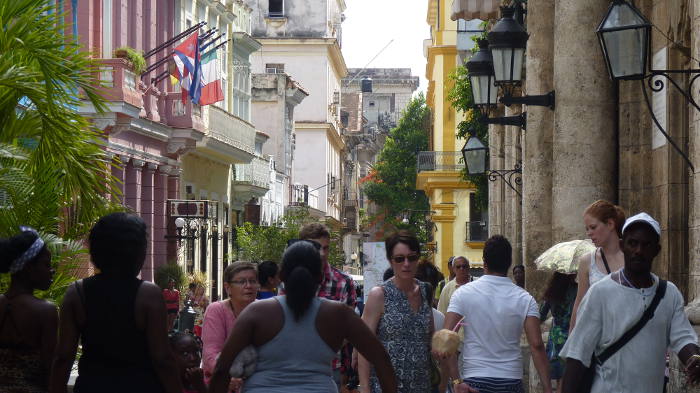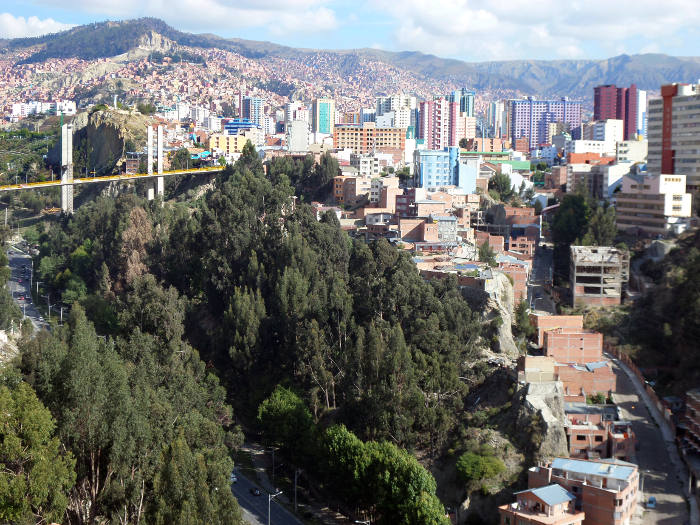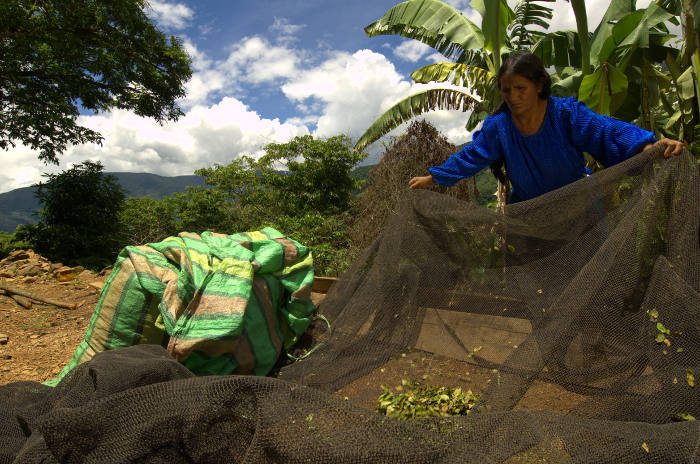-
|
31 August 2022
|Posteado en : Interview
Analysing and evaluating the results of public technical cooperation is a basic pillar for the correct development of any cooperation action. This is the commitment that is made at the beginning, during and at the end of a project: it is not only an obligation as part of our public sector, but it is also an exercise in responsibility to evaluate the effectiveness of aid
We talk about this with Mario Germán Sánchez González, expert in monitoring and evaluation of cooperation programmes and project technician in the area of Justice and Rule of Law at the FIIAPP.
Why is it so important to measure results in public technical cooperation for development?
There is a global consensus outlined for sustainable development, to which all cooperation actions must respond and contribute, seeking to increase the impact on the reduction of poverty and inequality and the improvement of public systems. In this field, defined, measurable and traceable results are a necessary starting and finishing point to achieve the desired impact.
We are talking about aid effectiveness and the commitments and progress of states in this area, but we are also talking about carrying out an exercise of responsibility in technical action and in the investment of the economic resources with which it is financed.
What is the importance of results in European cooperation?
Results orientation in cooperation programmes has become a hallmark of European cooperation. The European Union’s major regional programmes have been an example of progress in this area. The Directorate-General for International Partnerships is increasingly demanding the application of the results approach in programmes and projects.
Along these lines, in 2015 the European Union created the European Union International Cooperation and Development Results Framework (EURF) to align the results sought and financed by European cooperation with the 2030 Agenda.
Furthermore, in January 2022, a new revision has taken place in which the known results framework is renamed the Global Europe Results Framework (GERF), which seeks to align with the 2020-2024 Strategic Plans of DGs INTPA, NEAR and FPI that were developed under the policy priority of a ‘Europe Stronger in the World’.
How do the results relate to the Development Assistance Committee (DAC) evaluation criteria?
The results, understood as guiding intervention guidelines, have a direct relationship with DAC evaluation criteria that are used to monitor and evaluate interventions.
The results of the intervention, in their different stages, are the object and content of the evaluation criteria, whose report tells us, among other things, about the degrees of achievement, contribution and/or attribution of the results, their relevance, pertinence, coherence and impact.
What challenges and opportunities exist for the effective implementation of the results approach in cooperation?
The main challenge, but at the same time an opportunity, is to be convinced that it can and should be applied throughout the project cycle, starting with the formulation itself.
It is a challenge because it requires a proper understanding of the results chain and its different links. At the same time, it is an opportunity, because it is an instrument we work with every day in cooperation projects, and if used correctly, it can lead not only to coherence, but also to the effectiveness of the intervention.
-
|
14 April 2017
|Posteado en : Reportage
Pan American Day, a day intended for building closer relationships between the states of the Americas, has been celebrated since 1931.
Today, 14th April, twenty-one countries in the Americas celebrate Pan American Day, a day that reaffirms the unity of the continent.
The first time this day was celebrated was in 1931 to commemorate the founding of the Union of American Republics, later renamed the Pan American Union, which in 1984 became what we know today as the Organization of American States, or OAS.As stated in the Charter of the Organization of American States, the principles underlying this union are “to achieve an order of peace and justice, to promote their solidarity, to strengthen their collaboration, and to defend their sovereignty, their territorial integrity, and their independence”.
Following these same principles, FIIAPP manages a wide variety of projects in the region which, from different fields, contribute to promoting peace, justice and overall cooperation in the region.
For this reason, at FIIAPP we are joining the celebration by taking a tour of some of the projects we are managing in the region:
Cuba-EU Expertise Exchange

This is a project funded by the European Union that aims to accompany the Cuban government in its commitment to reforming its socio-economic policies. An example of this is the reform of the country’s tax administration, which the Director General of Economy and Planning of Cuba, Alfredo Jam Masso, explains is an extremely important activity. A website has already been created which allows taxpayers to manage their accounts, fill in forms and even close their accounts without having to visit a specific office. This reform has already been implemented all across the island.
Fight against drug trafficking in Bolivia and Peru

European experts have travelled to these two countries to carry out a series of trainings with the national institutions dedicated to fighting drug trafficking and organised crime. These experts come from France, Germany, the United Kingdom and Spain, and have different professional profiles: police officers, judges, prosecutors and customs agents.
Both Peru and Bolivia, the beneficiary countries, and Europe contribute their experience in this field, which is of interest to both parties, thereby improving the policies and techniques currently being applied in the fight against drug trafficking.
These trainings within the anti-drug trafficking project, in both Bolivia and Peru, are aimed at police officers at different levels explains Feliz Murga, the director of the organised crime unit of the National Police of Peru:
“Both cadets and active-duty officers have received courses related to the fight against drugs, intelligence and investigation of drug trafficking, and those already involved in the fight against organised crime have received specialised courses and courses abroad, in the European Union”.
COPOLAD

This is another drug-related international cooperation project, but with a different focus. COPOLAD, aspires to improve the bi-regional dialogue between Latin America and the European Union on drug policy.
This dialogue is centred on four components: consolidation of cooperation mechanisms, creation of national drug observatories, implementation of measures for drug demand reduction, and trainings for experts on drug supply reduction.
COPOLAD director Teresa Salvador summarises the work in the project: “these are institutional strengthening activities intended to help the national drug observatories obtain reliable, high quality data and use them to assess the impact of measures being taken to address this problem”.Other regional programmes
In addition to these, FIIAPP manages many other projects that operate at regional level: EUROCLIMA+, a programme focused on the adaptation to and mitigation of climate change; EUROsociAL+, a programme for social cohesion in Latin America; AMERIPOL, centred on improving the capacities of prosecutors and law enforcement and judicial authorities in the fight against organised crime.




